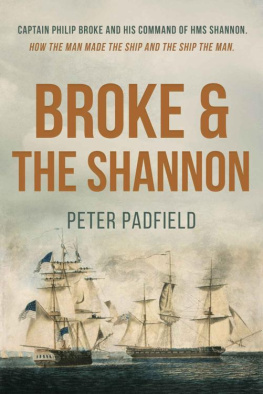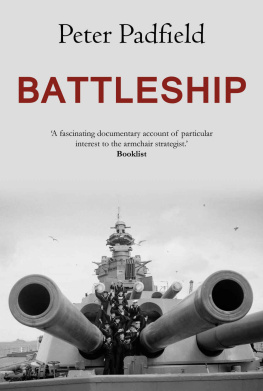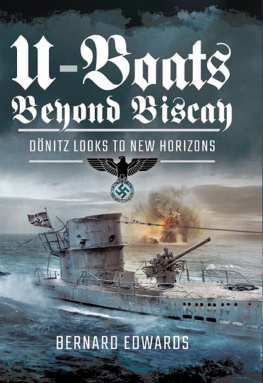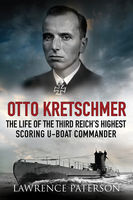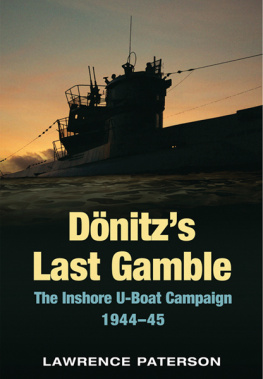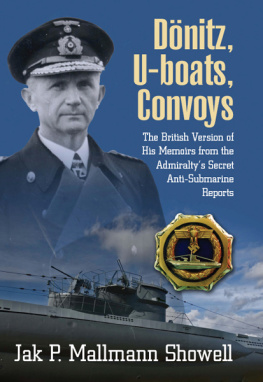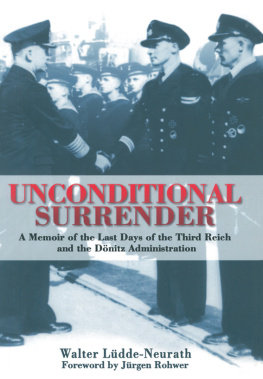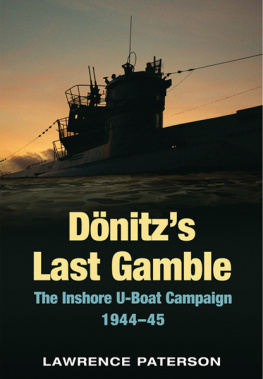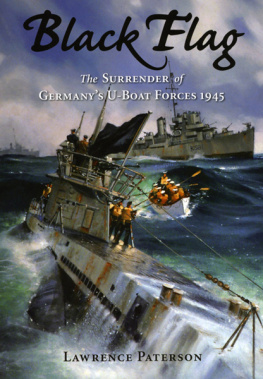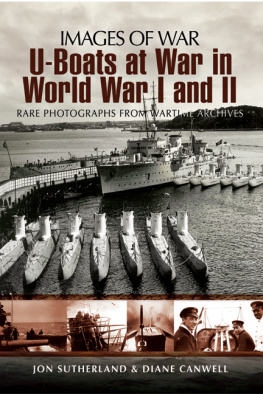DNITZ
Peter Padfield is an established biographer and naval historian. His interest in German history stemmed from a book he wrote on the Anglo-German naval rivalry prior to the First World War, The Great Naval Race. Since then he has written three major biographies of leaders of the Third Reich Hess, Himmler, and this book on Grand Admiral Karl Dnitz.
Dnitz: The Last Fhrer
Peter Padfield
For Jane
First published in 1984 by Victor Gollancz Ltd., London
Copyright 2013, Peter Padfield
All Rights Reserved
This edition published in 2013 by:
Thistle Publishing
36 Great Smith Street
London
SW1P 3BU
Contents
A senior officer who sees his responsibilities and duties in times such as these only within the limited terms of his military duties, without being aware of his grave responsibility towards the whole nation, lacks greatness and a proper understanding of his duty.
General Ludwig Beck, 1938
Each soldier has to fulfil the tasks of his position regardless. So our calling and our fate is to fight fanatically, and bound up with it is the task for each of us to stand fanatically behind the National-Socialist State.
Grand Admiral Karl Dnitz, 1944
Illustrations
MAPS
First, I should like to thank David Burnett of Gollancz for encouragement and enthusiasm, so greatly needed over a long haul such as this has been, and Anne Harrel, whose original idea this biography was. I should also like to thank the Manager of my branch of the National Westminster Bankwho kept his nerve.
My great thanks are due to Karl Dnitzs daughter, Frau Ursula Hessler, for her hospitality and ready answers, and to his niece, Frau Brigitte Fidelak, for her very many letters in answer to my queries, and help with pictures. I know both will be hurt by this book, and I am sorry.
From Dnitzs former staff officers, I should like to thank particularly Kapitn zur See ad Hans Meckel, Korv. Kapitn ad Jan Hansen-Nootbar, and Kapitn zur See ad V. Oehrn. I also corresponded with Dr H. J. von Knebel Doeberitz, Kapitn zur See ad W. Ldde-Neurath and from outside the former staff Flotillenadmiral ad Otto Kretschmer and Rechtsanhalt Otto Kranzbhler. Karl Dnitzs chief of operations, U-boat Command, throughout the war, and former Adjutant, Admiral ad E. Godt told me at the beginning he could not assist.
I should like to record my thanks to the late Konteradmiral Edward Wegener for much background help and instructive conversation, to Herr Klaus Querling for his tact and initiative in interviewing, to the Daegel family for hospitality, particularly Christian Daegel for his continuing help in finding books and articles; also to Frau Margarete von Lamezan for searching her memory, Professor D. Helmut Gollwitzer, Pastor of Dahlem, and Frau Rhricht, and to Heinrich Jaenecke, who searched his memory and allowed me to quote from his Stern article, also to Admiral ad Friedrich Ruge, and the late Albert Speer.
While still in Germany I should like to record my great debt to Frank Lynder for his specialist insights into aspects of the Third Reich and the U-boat war and his generosity in making them so readily available, also for his hospitality. From France I should like to thank Matre Denis Jacques for his interesting tour of the chteau and bunker at Kerneval.
In this country I should like to thank Professor Paul Kennedy of the University of East Anglia and Douglas Botting, both of whom pointed me in the right direction when I started what seemed a daunting task. I owe a great debt of gratitude to Robert M. Coppock of the Ministry of Defence for enormous, creative help with the German naval archive, help with German naval terminology, reading illegible German script and much information besides from his vast knowledge of U-boat affairs, also to Alan Francis of the Naval Library, and Philip Reed of the Imperial War Museum for his creative help. And I am grateful to Patrick Beesley, author of, among other excellent books, Very Special Intelligence, Tony Broughton, producer of The U-boat War for the BBC, Ludovic Kennedy, who presented it and described his interviews with Dnitz in The Spectator, and Jonathan Steinberg, all of whom assisted with recollections. I should like too, to thank Professor Volker Berghahn of the University of Warwick, both for background help from his own works and finding unobtainable books from the National Archives, Washington, and Edwin R. Coffee for detailed examination of the records, and advice.
Mary Paine was most enthusiastic and successful at finding illustrations, and Hugh Young, Helga Cook and Guy Padfield helped ease the burden of translation, for which I am grateful.
I thank the following authors and publishers for permission to quote passages: Paul Kennedy: Weltpolitik in J. G. Rohl & N. Sombart, Kaiser Wilhelm II: New Interpretations, Cambridge University Press; A. Dorpalen, Heinrich von Treitschke, Yale University Press; M. G. Steinert, Capitulation 1945, and K. Neureuther & C. Bergen, U-boat Stories, both Constable & Co.; H. Trevor-Roper (Ed.) The Goebbels Diaries, Secker & Warburg and Putnams; H. Trevor-Roper (Ed.), Hitlers Table Talk and W. Warlimont, Inside Hitlers Headquarters, both Weidenfeld & Nicolson; H. Schaeffer, U-Boat 977, Wm. Kimber & Co.; G. M. Gilbert, Nuremberg Diary, Methuen for Eyre & Spottiswoode; F. Gilbert, Hitler Directs his War, Oxford University Press; A. Speer, Spandau, the Secret Diaries, Collins; Jack Fishman, The Seven Men of Spandau, W. H. Allen Ltd; and for Karl Dnitzs own writings: Musterschmidt for Mein wechselvolles Leben; Athenum for 10 Jahre und 20 Tage; Bernard & Graef for 40 Fragen an Karl Dnitz; E. S. Mittler for Die U-bootswaffe; Ullstein for Die Fahrten der Breslau im Schwarzen Meer.
Finally I should like to acknowledge my great debt to two German historians who charted the ground over which this biography moves, and published so many hitherto unknown documents: Dr Jost Dlffer for Weimar, Hitler und die Marine, and Professor Michael Salewski for Die Seekriegsleitung, 19391945.
If there is anyone I have omitted by oversight, I apologize.
Truth is elusive enough at the best of times. To hunt it across a cultural divide such as that between Great Britain and Germany in the first half of the twentieth century presents problems. Race is not one of them: racial characteristics, such as they areand goodness knows there has been enough seafaring and migration, expulsion and conquest to have mixed up the genes somewhatare, on the surface, entertaining, even important, in the sense that style and manners are important, but otherwise about as relevant to a mans thoughts and acts as the colour of his eyes. Perceptions of racial differences are another matter; such perceptions played a large part in the later stages of the British Empire, an even larger part in the Third Reichit was all in the mind.
The real differences between peoples, surely, are caused by the systems under which they live and the habits of mind engendered by the systemsgive or take handfuls of dissidents. In that sense there is a chasm fixed by history, geography and beliefs between those brought up in the liberal tradition of the free west, and those from State-centred systems such as Germanys at the time of this story. The western system, arising from the needs of merchantsBonaparte was right in a more profound sense than probably he realized when he called the British a nation of shopkeeperssets high values on freedom, without which merchants cannot function properly, contract, which is the essence of trade, and the separation or balancing of powerfor once power is concentrated freedom is lost. The Prusso-German system, on the other hand, arose from the needs of soldierssince Prussia was a continental state without natural frontiers and surrounded by enemiesand placed high values on force and the threat of force, guile and deception, and the concentration of State power to maximize force for internal as well as external purposes. These opposing compulsions pervaded all areas of thought within the two systems, from philosophy and the writing and teaching of history to the popular press and even the pulpit, moulding minds in fundamentally different ways and making it hard for those from either system really to understand their fellows from the other. Tudor and Stuart Englishmen would have understood the group around the Kaiser without much trouble; Asquiths Liberals found it difficultsome never did make the necessary leapwhile most Americans were far enough away from the troubled continentor thought they werenot to have to try too hard. Much the same happened in the 1930s.
Next page

